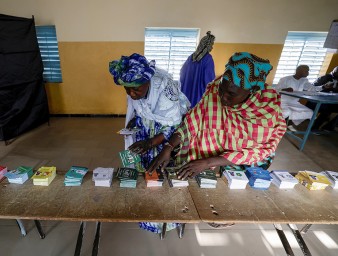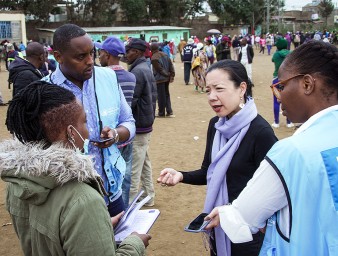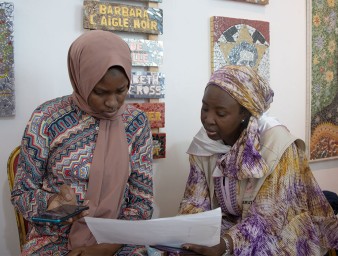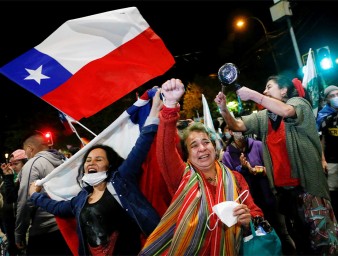2024 elections are testing democracy’s health
01 March 2024

“Democracy, human rights and the rule of law are interdependent and mutually reinforce each other. Weakening one endangers the others,” said Simon Walker, chief of the Rule of Law and Democracy section at UN Human Rights.
2024 has been called the biggest election year in history, with more than 60 countries, representing nearly half the world’s population, holding elections. Yet despite a potentially record number of people going to the polls, these elections are taking place against a backdrop of global democratic decline, which has an enormous impact on human rights.
From hate speech targeting migrants and minorities to internet shutdowns to disinformation campaigns spread by new technologies aimed at manipulating public opinion, increasing risks are threatening the integrity of elections and the respect for human rights and fundamental freedoms, democracy reports show.
In addition, the entrenchment of authoritarian forces in some countries, the rise of “illiberal democracies”, and a growing lack of trust in democratic institutions, including in developed, long-standing democracies, are contributing to this democratic erosion.
According to a report by the V-Dem Institute, the quality of democracy enjoyed by the average global citizen in 2022 is back to the levels of 1986. V-Dem Institute, an independent research institute based at the University of Gothenburg in Sweden, assesses democracies’ health on five principles: electoral, liberal, participatory, deliberative and egalitarian. Nearly three-fourths of the world’s population now lives in autocracies, including “electoral autocracies,” representing half of the world’s countries, the report said.
For its part, the Global State of Democracy Initiative, which analyses the state and quality of democracy in 173 countries across the world, found that in 2022 democracy continued to contract across every region for a sixth consecutive year.
“We are concerned about the negative effect that democratic erosion is having on human rights,” Walker said. “Around the world, trust in democratic institutions and processes is fading. Social cohesion and the social contract between the government and the people they serve is also weakening. Many people feel ignored, like democracy has not fully delivered its promise.”
The right to participate
Elections provide people with opportunities to freely express their will and exercise their right to participate in public affairs. This right is codified in the Universal Declaration of Human Rights and in several treaties, such as the International Covenant on Civil and Political Rights.
The right to vote and be elected in genuine elections is intrinsically linked to many human rights which are crucial to a meaningful and inclusive electoral process. Among these so-called prerequisite rights are the right to equality and non- discrimination, the right to freedom of opinion and expression, the right to freedom of association and peaceful assembly, and the right to freedom of movement.
But elections can also exacerbate existing tensions in societies, particularly at times of complex transformations and crises, including climate change, rising inequalities and armed conflict, leading to a higher risk of human rights violations.
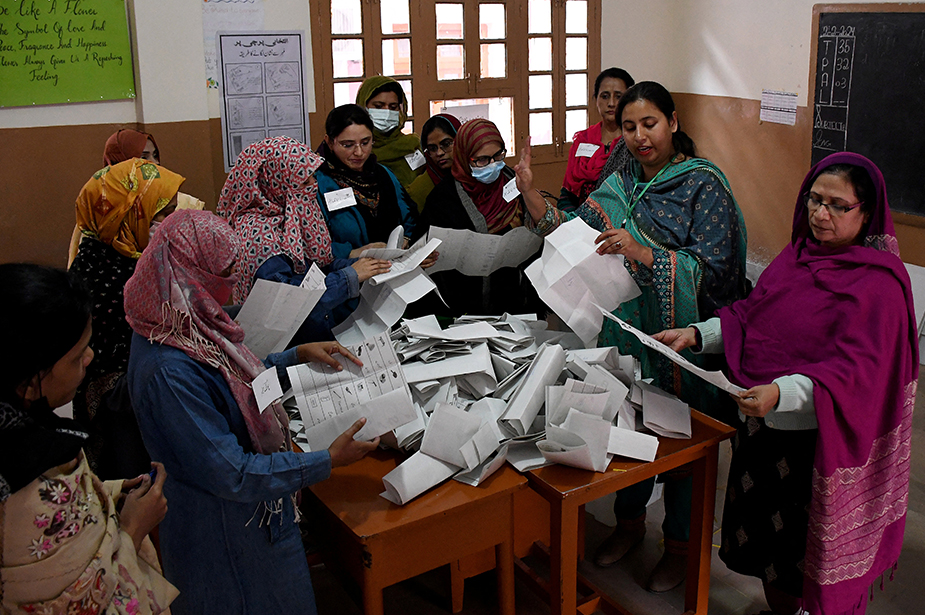
Polling staff count ballots during a general election in Hyderabad, Pakistan. © REUTERS/Yasir Rajput
Some rights may be threatened in the context of elections, particularly freedoms of opinion and expression, peaceful assembly and association, and the right to participate in public affairs.
Electoral processes may also sometimes trigger arbitrary arrests, surveillance, ill-treatment and torture, extrajudicial killings, and other human rights violations. Bangladesh’s election in February was marred by a crackdown on opposition and violence. In Senegal, one of the remaining democracies in coup-hit West Africa, there has been a serious erosion in civic space, with hundreds of opposition members and activists arrested in the lead up to elections that were slated for late February. Those elections were postponed.
Specific groups that are commonly victims of discrimination can be particularly at risk. The recent elections in Pakistan were a reminder of the barriers faced by women and minority communities towards an inclusive process. Significant barriers to women's political participation also remain in many Pacific Island countries.
“
Elections are a litmus test of civic space and of effective governance. States and societies cannot afford to fail this test.
“
VOLKER TÜRK, UN HUMAN RIGHTS CHIEF
In many countries, election campaigns are adopting divisive and dehumanizing rhetoric, casting migrants and refugees as scapegoats for wider societal challenges. The issue of migration will likely be an important factor in several upcoming polls, including the European Parliament elections in June, the U.S. presidential vote in November and a general election in the UK expected this year.
Violations of economic, social and cultural rights can also give rise to tensions in the context of elections.
AI “deepfakes”
Rights groups have warned that artificial intelligence-generated disinformation, including “deepfakes,” might have a serious impact on democracy and pose unprecedented risks for elections in 2024.
During a trip to Silicon Valley to meet high tech companies, civil society and government officials, UN Human Rights Chief Volker Türk warned that powerful propaganda and disinformation campaigns can disrupt elections, deceive people and spread misogyny and hate, and called for AI policies and practices anchored in human rights.
Unveiling his human rights vision for a better future, Türk said this week the world needs to seize the opportunity of polls to rise above divisive politics and demand respect of human rights.
“Elections are a litmus test of civic space and of effective governance. States and societies cannot afford to fail this test.”
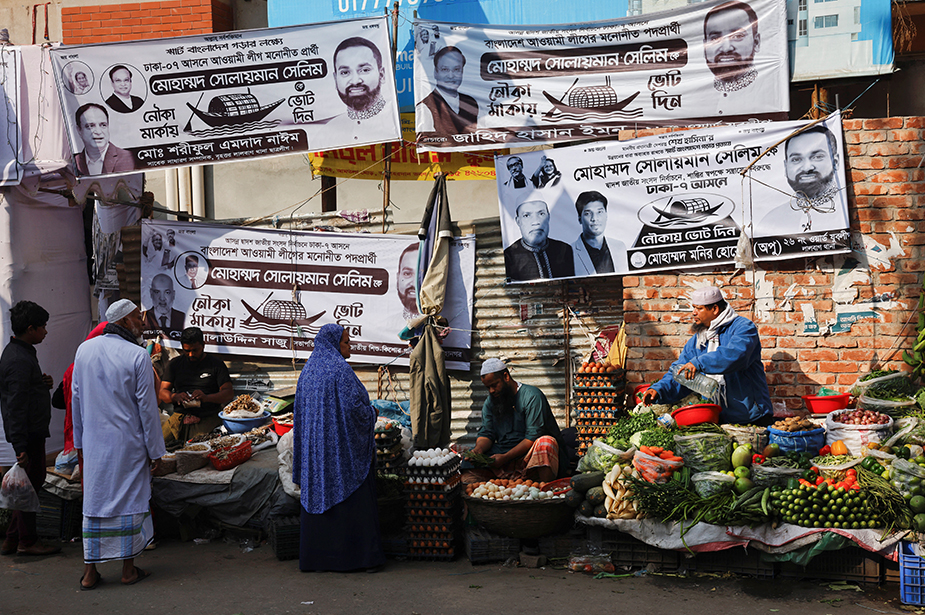
Electoral banners hang on walls as street vendors sell vegetables in Dhaka ahead of the general election in Bangladesh. © REUTERS/Mohammad Ponir Hossain
Our work
UN Human Rights works to promote and protect human rights within the context of electoral processes.
Through cooperation between headquarters and field presences, some activities include monitoring and reporting on human rights violations before, during and after elections; training national human rights institutions, civil society and media on key human rights issues around voting; providing technical assistance to bring national electoral laws in line with human rights; raising awareness of equal participation of marginalized groups, including women, youth, minorities, LGBTQIA+, Indigenous Peoples and persons with disabilities; and supporting human rights mechanisms, including treaty bodies and special procedures.
Signs of hope
Walker cites several factors that help explain the erosion of democratic principles and public trust.
One factor is the lack of transparency in public decision making, or accountability of governments. Also, inequalities and the marginalization of women, minorities and others are feeding distrust and cynicism in democratic institutions. The absence of appealing political candidates who voters can identify with further compounds feelings of disillusionment and alienation, particularly for youth.
However, there are signs of hope for the spirit of democracy.
Civic action and protests outside the electoral period in many countries show that people continue to demand human rights and equality. One example of thriving civic action is the climate protests led by youth across the world. Powerful movements against racism are another example.
Also, some elections have showed good turnout, even during the pandemic. Burundi, Israel, Mongolia, Singapore, South Korea or Sri Lanka were among countries that held elections amid the pandemic crisis, with an increase in turnout compared to previous polls, according to International IDEA, an intergovernmental organization.
For Walker, meaningful and inclusive participation is key to addressing the human rights and democratic crisis and to rebuild trust and social cohesion. This means ensuring that different groups are considered and heard, particularly the most vulnerable and traditionally marginalised ones.
“Precisely at this moment of uncertainty and unpredictability, we must remain steadfast in our commitment to democracy and human rights.”
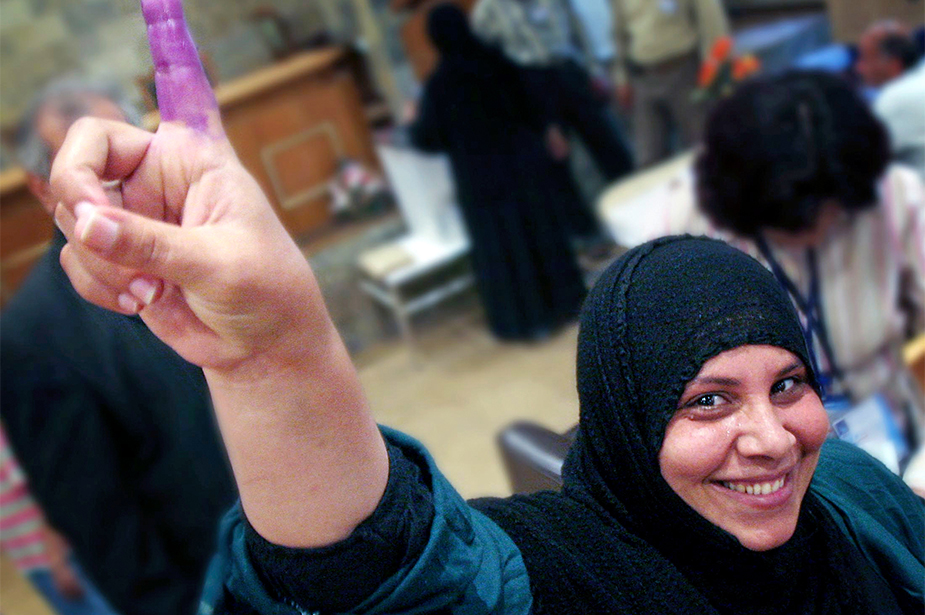
A woman shows her ink-stained finger after voting in a constitutional referendum in Baghdad in 2005. ©REUTERS/Thaier Al-Sudani
